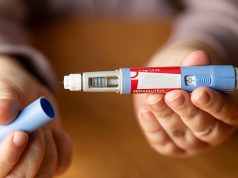However, myocardial infarction risk and cerebrovascular accident risk higher in transgender men compared with general population of women
By Elana Gotkine HealthDay Reporter
WEDNESDAY, Nov. 12, 2025 (HealthDay News) — Gender-affirming hormone therapy use is associated with increased cardiovascular risk among transgender men but not transgender women, according to a study published online Nov. 4 in the European Heart Journal.
Lieve Mees van Zijverden, M.D., Ph.D., from Amsterdam University Medical Center, and colleagues conducted a retrospective cohort study involving 2,714 transgender women and 1,617 transgender men using gender-affirming hormone therapy between 1972 and 2018. Medical diagnoses were registered from 2012 to 2022. Using general population incidence rates, standardized incidence ratios for myocardial infarction, ischemic cerebrovascular accident, and venous thromboembolism were computed.
The researchers found that compared with general-population men, transgender women had lower myocardial infarction risk, similar cerebrovascular accident risk, and higher venous thromboembolism risk (standardized incidence ratios [95 percent confidence intervals], 0.5 [0.32 to 0.71], 0.94 [0.72 to 1.19], and 1.81 [1.33 to 2.35], respectively) after adjusting for socioeconomic status. Compared with general-population women, transgender men had higher myocardial infarction risk, higher cerebrovascular accident risk, and similar venous thromboembolism risk (standardized incidence ratios [95 percent confidence intervals], 4.20 [2.72 to 6.01], 1.55 [1.01 to 2.20], and 1.00 [0.53 to 1.61], respectively). The results were minimally impacted by socioeconomic status.
“We know that testosterone use in transgender men can lead to slightly higher blood pressure and poorer cholesterol levels, which increases the risk of cardiovascular disease,” van Zijverden said in a statement.
Copyright © 2025 HealthDay. All rights reserved.








